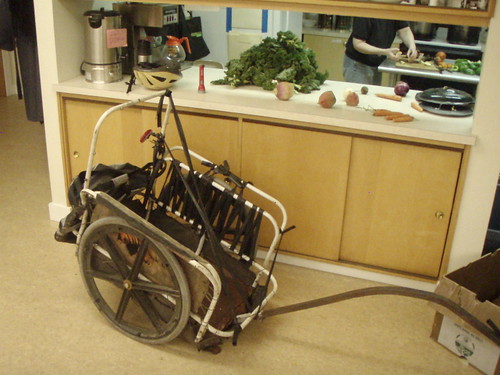Like many a youngster, I was always bothered by "learning the 3Rs" by which was meant "reading, writing and arithmetic" and you can see why: only an illiterate would think "arithmetic" began with R. I didn't get then what I do now: that there's a wry sense of humor involved. Like when I asked about the giant N on the Nebraska State stadium and some professor wryly said "yeah, N is for Knowledge".
OK, now with that out of the way, let me be even more contrarian in saying the 3Rs aren't basic at all compared to a more neglected elective, namely Home Economics. I'd summarize the early grades as being about Econ in the sense of Home Econ, and Health, which interweave around a "my body myself" chief pillar of self interest. The two year old is very rightly obsessed with eating and sanitation. Obsession becomes merely a strong focus over time.
However, Home Economics doesn't have to mean some simulated Betty Crocker kitchen and lots of (hashtag) trad-wife apron wearing. Think more of a submarine's kitchen with a hungry crew to feed daily, like we feed the school itself. Do we have apprentices in the school kitchen cafeteria? Not if we're slow and dumb. Unions would disallow it (really?).
But even if we're not allowed in the kitchen, we're allowed to make cooking shows about serving all the folks showing up for a healthy meal. We know a lot about sanitation and the proper handling of foods, not just superficially, but with a deep understanding of microbes, disease transmission, medical science. Medical science is our initial portal into all the STEM subjects. Which ties me back to Nebraska.
Dr. Bob Fuller was not alone in seeing the writing on the wall: students not intending to make physics their major nevertheless had reasons to know a lot of physics, many of them health related. The human body is where all principles converge, even quantum, and my First Person Physics meme was good at capturing that essence. Dr. Fuller was happy to credit me with that meme and bring me on as a member of the team. He flew me out to the University of Nebraska, at Lincoln, for a strategy session. I also gave a talk.
It's my Food Not Bombs experience that informs a lot of my thinking, as well as my experience with the Gathering of Western Young Friends. In FNB, we'd harvest food from warehouses in an urban setting, approximately enough to serve fifty people. We would prepare and cook the meal developing a menu on the fly, based on what produce was available, plus what we had in storage as staples, such as grains. We would usually cook in a church kitchen. The Gathering was the same way: we had control of a large kitchen equipped to prepare and serve meals to hundreds.
A lot of developers may read this and think: wait a minute, aren't we still educating for a nuclear family based lifestyle wherein each household has its own well-equipped kitchen and the planned-for meal size is accordingly small. Two parents with two kids and a pet. What's the point of educating cooks to serve in the military, or at spontaneous gatherings such as festivals?
Also problematic: how young am I going when I say "grade school"? Kitchens contain sharp objects and equipment capable of starting fires. We need students in charge of their own emotions and unlikely to act out in a violent manner. Has my utopia somehow come up with the optimum filters?
So yes, my recipes for reform only spell disaster in the eyes of some, whereas for enterprising social media personalities, we're talking grist for the mill. Answers will emerge in conversations and I'm not saying those need to be with me ("chat amongst yourselves"). I'm helping wheels turn some other wheels and so on.
"Older kids with some younger prodigies expressing an interest and aptitude" is the usual answer (which sidesteps the deets around screening), when it comes to working around knives and ovens, toxic (if consumed) cleaners. A first pass might involve using more video equipment, even doing some editing, before diving into dishwashing first person. Watch your peers. Learn the ropes vicariously first.
As to why are we cooking for groups, I'm seeking to balance the nuclear family picture, that's true. In between is the restaurant chef, who will maybe cook some dishes for large numbers, say rice and a few soups, whereas the majority of meals are made to order, but from a smallish set of recipes or templates, what we always call menus.
Speaking of recipes, the obvious bridge to STEM and Theater in PATH is via programming and algorithms (including dances). Many a textbook introduces "following an algorithm" as akin to "following a recipe". In theater, it's "following a script". In all cases we might speak of "programming", not forgetting the possibilities of music.

